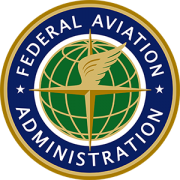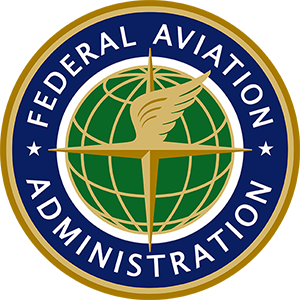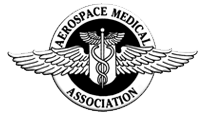FAA Policy Update

1. Pilots on Coumadin (Anticoagulation therapy)
For applicants who are just beginning Warfarin (Coumadin) treatment the following is required by the FAA:
◦Minimum observation time of 6 weeks after initiation of warfarin therapy;
◦Must also meet any required observation time for the underlying condition; AND
◦6 INRs, no more frequently than 1 per week For applicants who are on an established use of warfarin (Coumadin), status report from the treating physician should address and include:
◦Drug dose history and schedule;
◦Comment regarding side effects; AND
◦A minimum of monthly International Normalized Ratio (INRs) results for the immediate prior 6 months.
NOAC/DOACs: For applicants who are just beginning treatment with NOAC/DOACs, the following is required:
◦Minimum observation time of 2 weeks after initiation of therapy; AND
◦Must also meet any required observation time for the underlying condition
2. AFIB treatment
In chronic AFIB, when the FAA requests a 24 hr. Holter monitor and there are sinus pauses >3.0 sec., they will withdraw the authorization. Likewise, if the resting heart rate is 100 or there are episodes where the heart rate exceeds 130-140 BPM with minimal exertion, they will withdraw the authorization. This is regardless of whether the airman is being treated with digitalis, beta-blockers, or calcium channel agents.
3. Heart valve replacement
Follow-up for a simple heart valve replacement when there is no evidence of coronary heart disease there will be a clinical status report, CVE, standard ECG, and Doppler echocardio-gram every 6 months for first- and second- class and annually for third-class.
4. Heart valve replacement and warfarin
In mechanical heart valve replacement where the airman is taking warfarin, there will be the requirement for 80% of the INR’s to be between 2.5 and 3.5.
5. Multiple heart valve replacements
Multiple heart valve replacements are now considered on a case by case basis.
6. Coronary recovery and testing
In the medical certification of myocardial infarction, angina pectoris, coronary bypass grafting, -coronary angioplasty, coronary atherectomy, and coronary stent placement. An observation or grounding period is no longer required for Class 3 applicants.
For Unlimited First- and Second-class airman the following observation or grounding period before heart catheterization is required:
6 months for Coronary artery bypass grafting AND PTCA and Stent of the Left Main stem Coronary Artery
3 months for all other PTCA and Stents
The follow-up for CAD for Initial Certification First and Full second-class:
CVE, LIPID PANEL, FBS, Maximal Bruce Protocol Nuclear stress AND the repeat Cardiac catheterization
After the Initial Certification, the FAA allows a Plain Bruce Protocol Stress test every YEAR. There is no requirement for a Nuclear, UNLESS the plain stress test demonstrates ischemic changes which demonstrate that it was a False Positive
The FAA cardiology consultants reserve the right to request 6 and 12 month follow-up reports, depending on the airman’s particular case. They will extend the follow-up requirements when the airman demonstrates stability.
7. Restrictions
The FAA is not legally allowed to place any restrictions on a first-class medical other than eye, hearing, color vision, or a time limitation. They can place restrictions on second- and third-class medical certificates. In other words you/they cannot place a restriction of SIMULATOR DUTIES ONLY on a first-class medical. They can, for example, place the restriction NOT VALID FOR CARRYING PASSENGERS OR CARGO FOR COMPENSATION OR HIRE on a second-class medical.
8. Pacemaker dependency
The FAA has not been granting medical certification to first- and second-class airmen with pacemaker dependency. They define this as a heart rate of no less than 40 BPM when the pacemaker is turned down to its lowest rate or completely off.
9. Pacemaker observation period
The FAA is now granting medical certification in cardiac pacemakers after a 2-month observation period, instead of the previous 6-month observation period. This assumes that there is no evidence of coronary artery disease or the need for heart valve replacement. This will include replacement of generator, lead system, or both.
10. Epilepsy, seizures, brain injury
Applicants with epilepsy will now be considered after a 10-year seizure-free period and 3 years of being off anticonvulsant medications.
Airmen with a single seizure will be considered after a 4-year seizure-free period and 2 years off anticonvulsants.
11. Requip (ropinirole) not allowed
Since Requip (ropinirole), which is used in the treatment of Parkinson’s disease, carries the same warning as Mirapex (pramipexole), the FAA does not allow it in airmen. These medications have been associated with the sudden falling asleep of individuals. This falling asleep has occurred up to 1 year after the initiation of therapy, many times without warning. The events have occurred while operating a motor vehicle.
12. Provigil (modafinil) no longer allowed
Provigil (modafinil), a wakefulness-promoting agent that is utilized in excessive daytime somnolence, is not allowed in aviation duties.
13. COVID-19
On December 11, 2020 the FAA put out a “hold-short” statement today concerning COVID-19 requirements for pilots. The FAA withdrew its previous posting on the subject which had instructed AME’s to defer all cases where the airman was hospitalized for COVID-19. The FAA stated: “Given the rapidly changing world of COVID-19, the Office of Aerospace Medicine is updating the guidance for AMEs and airmen following SARS-CoV-19 infection.” MORE
Two answers – One question
At the recent aviation medical examiner seminar an AME raised a common concern that the FAA needs to advise AME’s more frequently about FAA policy changes: “Let us know about recent regulatory changes, e.g., the prior use of Ritalin-like drugs under [question] 18m and psycho tests now needed”
The following details the way the Aerospace Medical Certification Division typically handles ADD cases.
If a young airman reports the diagnosis of ADD and is taking any of the common medications —Ritalin -(methylphenidate hydrochloride), Adderall (combination dextroamphetamine and amphetamine), or Dex-edrine (amphetamine)—he or she will be denied medical certification. The condition and the medications are incompatible with aviation duties for any class. If an airman applicant mentions that they took any ADD medications and had other behavioral health conditions such as depression or anxiety, or they were diagnosed with ADD/ADHD alone and it was recent (within the last 4 years) the FAA will require neuropsychological testing.
Testing may include: the Trail-Making Test, the Wisconsin Card Sorting Test, and the Paced Auditory Serial Addition Test (PASAT). These test the individual’s capabilities of performing in a multitasking situation. The FAA will also accept, in lieu of the above tests, the TOVA – Test of Variable Attention — or the Conner’s Continuous Performance Test. The applicant should provide the FAA with an eloquently detailed statement from the treating physician as to how the diagnosis was made, the response to the treatment, and how the prospective airman currently performs while off the medications.
The question raised by this AME also underscores an important point. The FAA does require continuing education to maintain designation status. Most Aviation Medical Examiners do not attend these meeting beyond the FAA minimum required frequency and in many cases AME’s perform a limited number examinations. Since there are constant changes in FAA aeromedical certification standards, it is impossible for the FAA to notify all AME’s for every change in FAA policy. AME’s are private physicians designated, and not employed by, the FAA. Moreover, the busy practice of medicine makes it difficult if not impossible for AME’s to be sufficiently familiar with the nuanced documentation or testing which may be required by the FAA in each particular case. There are virtually infinite amounts of medical conditions and scenarios.
Pilot Medical Solutions works with pilots throughout the U.S. and abroad and we collaborate with the FAA and private physicians on multiple cases daily. We have assisted pilots and their private physicians since 1995. Having this unique level of experience we are exceptionally familiar with the FAA’s requirements.
The information above is abridged guidance not intended to fully detail the FAA’s requirements. It is also possible that any information or lack of information is not up to date. Call 405-787-0303 for current and additional guidance. FAA standards, protocols and forms can be found here.
This page was revised on 12/17/2025







Thanks for the great post
This is the only place I have found straight answers to FAA medical questions. Thanks for the clear info.
I must convey my appreciation for your generosity for men and women who have the need for assistance. Your personal commitment to passing the solution across appears to be remarkably important and have encouraged men and women like me to reach their desired goals. Thanks a lot; from all of us.
Enjoyed looking at this, very good stuff, regards.
My question is about sleep apnea.
In order to satisfy my lady friend about my snoring at age 75 I took a sleeping test.
Of course it showed a mild case of Apnea. Not knowing the sensitivity of this with FAA I admitted to AME about my sleep test result and that I no longer user the machine since the
Lady friend moved away. The AME deferred my case to FAA. Who knows when I will hear from
Them…??? My medical expires soon. I am only a VFR 100 hr per year pilot.
I am not obese and in very good health. I show no symptoms of being tired during the day.
I sleep very well and was very happy until this event.
Am planning to take another sleep test.. And consult with AOPA about what to do.
Any suggestions?? Am a healthy very active 75 years of age.
Thank you
Adom Moutafian
Los Gatos, ca
408 8XX-XXXX
Adom,
The FAA usually responds within 60 days. They are required by federal law to issue a timely disposition. That said, you can expect the FAA to ask you for additional information concerning the presence or absence of sleep apnea. While this may not apply to you, in general, America has become increasingly obese. The prevalence of sleep apnea in the US has also increased. This is a potentially serious sleep disorder. More information can be found at: http://www.leftseat.com/faa-medical-certification-sleep-conditions/.
The good news is that you don’t have to wait until the FAA responds. It is very important to make sure your sleep doctor provides the best possible information with eloquent detail to satisfy the FAA’s concerns. Pilot Medical Solutions would be happy to help your physician with the technicalities.
I am so thankful for Amanda and the team at Pilot Medical Solutions.
They helped me get back in the air so I could take care of my family.
They are a God send.
C. Posey, Eudora, AR
I was grateful to find leftseat.com. Thank you for practical clear guidance on FAA requirements. Your willingness to post enough information to allow pilots to help themselves speaks well of you. If I run into trouble with the FAA someday I will call you guys first.
Thank you for providing clear language interpretation of current FAA medical policies. It is frustrating to try and interpret FAA medical certification requirements without your guidance. In many cases the FAA doesn’t even release their changes in pilot medical certification policy. Again, thanks!
The FAA seems to have changed its policy towards a stricter set of FAA special issuance requirements since Basic Med came out.
I am thinking about Basic Med but really want to keep a class 2 medical in case I have an professional flying opportunity. What do you recommend?
While the FAA is always changing policies, we have observed several changes FAA policies since Basic Med became law. This may be an effort to “assure safety” for those who might ultimately fly under Sport Pilot or Basic Medical Rules. With several medical conditions, Special Issuance is required before one can operate “independently” under Sport Pilot or Basic Medical Rules. Many of these airmen’s conditions and parameters were previously reviewed annually by the FAA.
That said, the FAA requirements are still fairly liberal and in most cases pilots can be approved for Special Issuance with good medical evidence. Pilot Medical Solutions helps pilots establish eligibility BEFORE FAA medical application. Contact us at 405-787-0303 or 888-LEFTSEAT.
Seems the FAA is busy restricting pilots without regard for their rights. What can be done?
Erik
Erik,
The FAA safety mandate can override certain privileges. It can be frustrating but most of those who are persistent will succeed. Persistence and experience are usually key factors which can assure you get through it. Pilot Medical Solutions processes thousands of waivers every year. Call 405-787-0303.
It’s great that the FAA has released a new diabetes policy but the requirements are obnoxiously confusing. HELP!
EG
Eric,
We provide case management assistance with the new insulin treated diabetes protocol.
Please contact us at 405-787-0303 or contact us at http://www.leftseat.com.
Has the FAA authorized any amnesty or other help due to COVID19 / Coronavirus?
Pilot Medical Solutions has dedicated a web page to information concerning the Coronavirus (COVID 19). You will find information on the DOT/FAA policy including suspension of FAA medical certification enforcement. The page is https://www.leftseat.com/coronavirus-COVID19/.
The information on the FAA’s new policies is very informative. Thank you for your website and support.
JJ
how long must i wait after pacemaker replacement. not initial placement i have had it for 8 years and have a special issuance
battery has 3 months left.. is there a waiting period for replacement?
Eddie,
The wait period after pacemaker implantation is obviously not a factor since you have had it for 8 years. If you are asking about battery or unit replacement it depends upon the class of certification and several other factors such as the reason for the change. If it is just a straight change out of an old unit for a duplicate new unit that’s likely a 2 month wait and will require customized paperwork. Contact Pilot Medical Solutions at 405-787-0303.
how does Basic Med factor onto these FAA policies
Basic Med often transcends FAA policies especially when/where medical certification is not needed. Contact Pilot Medical at 405-787-0303 to confidentially discuss your situation.
Your expertise shines through in every post. Thanks for your service to pilots.